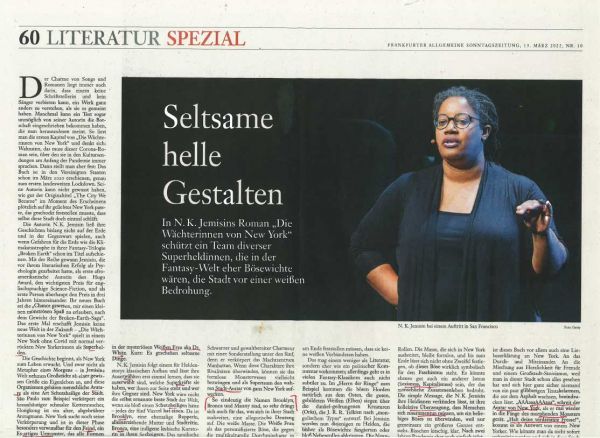The Book Market is Run by Capitalists
As a writer, I have participated in only one book-signing, and have never given a reading of anything I have written--four books and 108 blog-posts. From listening to other writers talk about public appearances, I gather that the politics of an appearance can get tricky, Sometimes, an audience really just wants to get your take of their favorite writers--Rowling, Franzen, Collins, and Eugenides, to name a few.
First of all, a writer making a public appearance wants to sell his own books, then go on to other venues to sell books there, not pitch for other writers so much; but if you don't express enthusiasm for the audience's favs, they might decide they don't like you.
A few lucky writers can get an advance from publishers, or a foundation-grant that enables them to support themselves while they prepare a book for publication--the great American novel, or whatever. Everyone else has to start from scratch and do it all himself, and sink or swim in the commercial ocean.
If you want to write something that sells in a Capitalist economy, it helps to have a popular ax to grind--against the White Establishment Elite, Capitalist robber-barons, the male-dominated pecking-order, and so on. Never mind that Capitalist publishing houses will offer a writer a deal to advertise, distribute. They will sell whatever they can sell! Anti-capitalist books sell as readily as patriotic ones. The publishers have to make a profit before the whims of readers move on to something else.
What happens to the literary high-fliers, I wonder? Like Leo Tolstoy, Mark Twain, Friedrich Schiller, Victor Hugo, and others. Can the stratospheric cultural winds keep them aloft, against the modern, commercially-driven upstarts? If bookworms have to rescue library-books from embattled Kiev, will they prefer the upstarts to George Eliot or E.M. Forster?
The upstarts have attended college and know that their writing can't hold a candle to Eliot and Forster, but they are market-savvy enough to know that they cannot pay the rent if they try to write like Eliot and Forster in a Capitalist society.
All of these thoughts came together as I sat in the restaurant of my hotel in Germany, reading the Sunday papers. The Frankfurter Allgemeine and Welt am Sonntag newspapers published reviews of the fantasy novel The City We Became, by N. K. Jemisin, published in 2020 in the U.S.
Set in New York City, a rag-tag group of Minority guardian angels has to rescue the city from the forces of evil--the usual suspects in anti-Capitalist books--racism, sexism, globalism, gentrification, the police, and finally the Alt-Right. The story defines good and evil in simplistic terms that the article describes as "die binäre logik von Eigen und Fremd" (the binary logic of friend and enemy) doctrinally correct, but not very creative. Behind all the evil forces is a white woman, named appropriately Dr. White.
The reviews quote from the Swiss psychologist C. G. Jung who formulated the theory of the "Collective Unconsciousness," about archetypal names like "The Great Mother," or the "Wise Old Man." Jemisin names her avatars "Bronca," "Sao Paulo," and "Graffiti Genius." The German reviewers referred to her conviction, "ihre kollektive Überzeugung, dass Menschen sich zusammentun müssen." They must join together. Society must be "inclusive." People must "verschwistern"--treat each other like family.
But Jung himself said that, as people mature, they move toward individuation and grow out of the collective unconsciousness. On this point, the scientific Left, which believes that people must evolve and modernize, must break ranks with the religious Left, who still believe in a mystical collectivism, a more primitive societal structure, in spite of all its humanitarian trappings.
I have a lot of problems with this book. There is no suggestion that Jemisin's rag-tag super-heroes could enable a functioning society apart from the Whites, or create empowerment apart from them. The White superiority to her super-heroes is the main rebuke that drives the anger in this story. The organized Whites versus the rag-tag Blacks invites negative comparisons. It has to hurt Jemisin that Blacks resign themselves to leadership by the Whites, or else, have to destroy the superior White power-structure to give them peace-of-mind. The only avatar she never refers to directly is "The Great White Father."
The Black nationalist Marcus Garvey did not want Blacks to "live at the mercy of the organized class." Living as the second-class of an organized society dispirits them. Garvey wanted Blacks to have wealth and organization apart from the Whites. It is the biggest reason he wanted Blacks to have their own country, build up the Black psyche, and gain a sense of accomplishment and self-respect.

